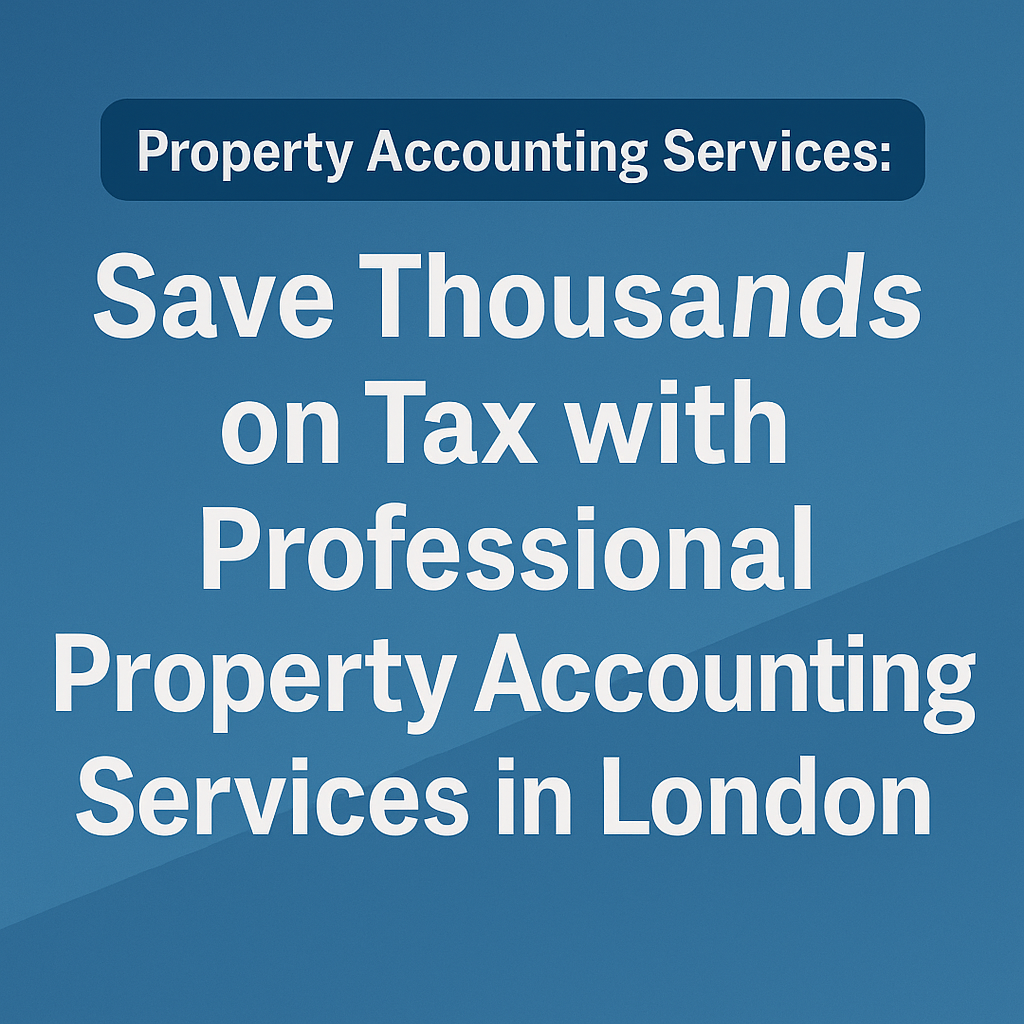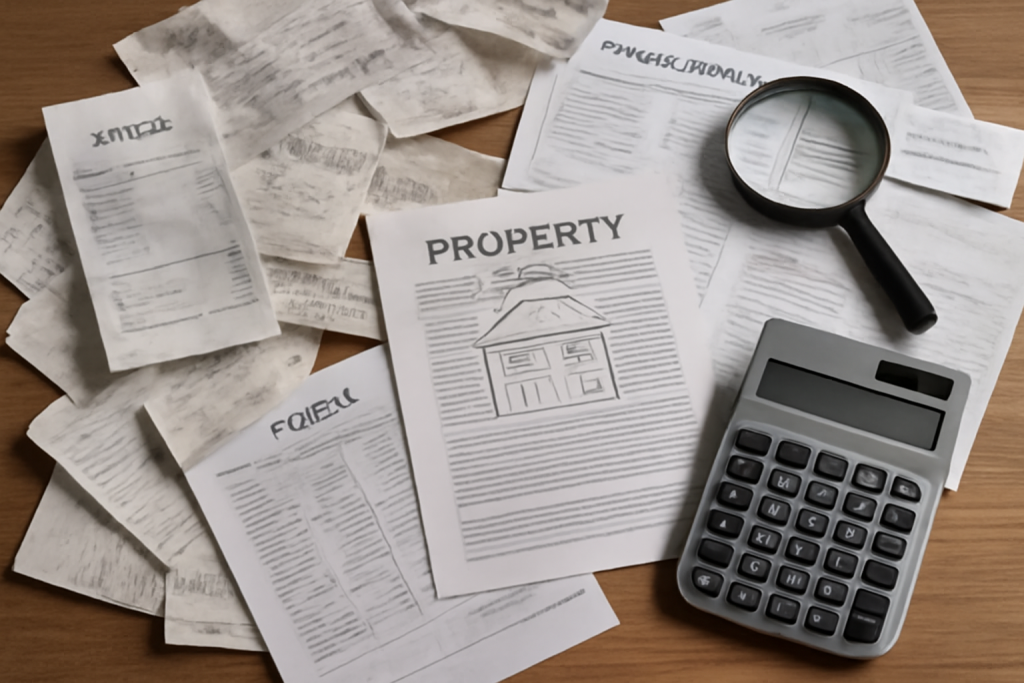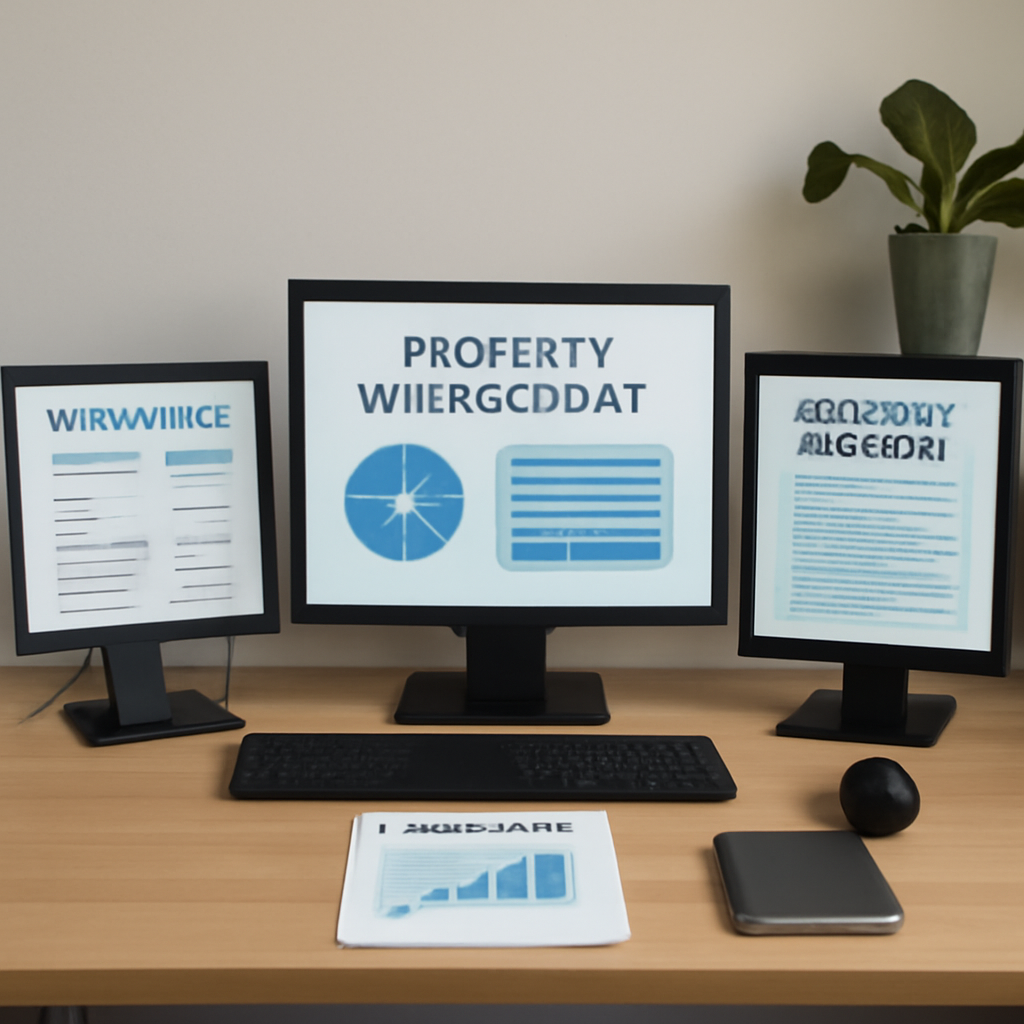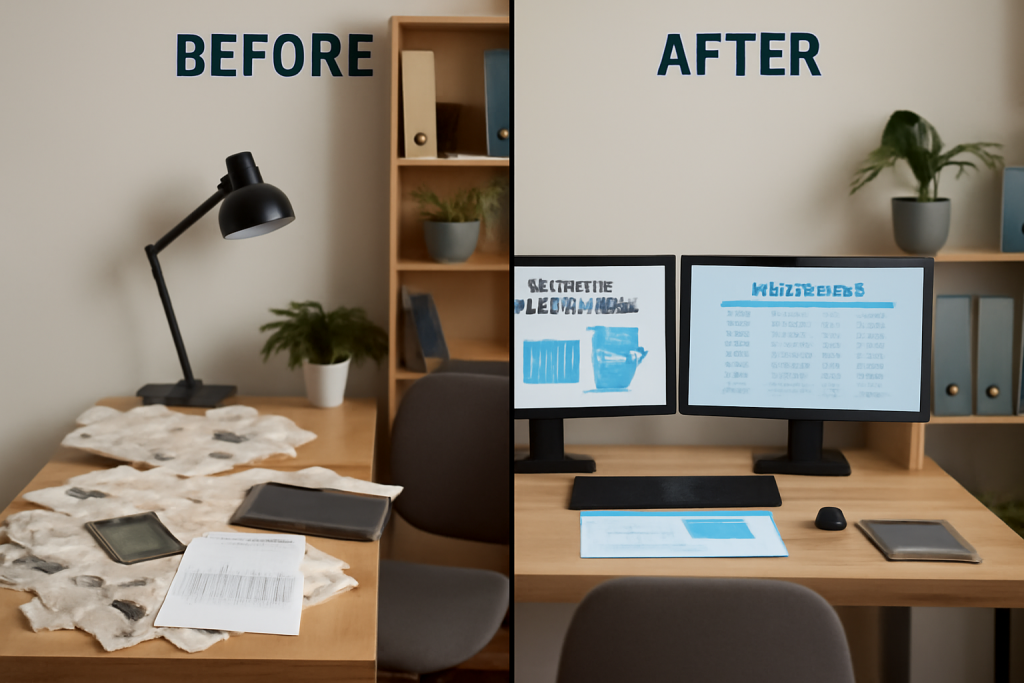
Right, let’s get something straight from the start. I’ve been watching property investors fumble through their accounting for years, and frankly, it’s painful. Not the “stubbed toe” kind of painful, but the “watching someone try to change a tyre with a spoon” kind of painful. The worst part? Most of them don’t even realise they’re haemorrhaging money until it’s too late.
Here’s what’s really keeping me up at night: whether you own one unit or a hundred, having a solid understanding of property accounting is essential for success in the industry. Yet somehow, we’ve created this bizarre culture where property accounting is treated like that mysterious button in your car—you know it’s important, but you’re terrified to touch it.
The landscape has shifted dramatically in 2025. Section 24 restrictions aren’t going anywhere (surprise!), capital gains tax rates are making investors sweat, and don’t get me started on the labyrinthine world of corporation tax for property companies. Meanwhile, professional property accounting services have become less of a luxury and more of a survival necessity.
But here’s the thing that really gets me—I’ve seen brilliant investors, people who can spot an undervalued Victorian terrace from three postcodes away, completely capitulate when it comes to their books. They’ll spend weeks researching yield calculations but can’t tell you their actual profit after tax. It’s maddening.
The Three Pillars That Everyone Gets Wrong
The Bookkeeping Disaster Zone
Let me paint you a picture. It’s January 2025, and Sarah (not her real name, but she’ll recognise herself) rocks up to my office with a carrier bag. Not a briefcase, not a folder—a carrier bag. Inside? Twelve months of receipts, bank statements printed on what appears to be tissue paper, and something that might once have been a tenancy agreement but now looks like abstract art.
“I need my tax return done,” she says, as if this archaeological dig is somehow normal.
Property accounting starts with ruthless organisation. Not the Marie Kondo kind—the “your financial life depends on it” kind. The difference between successful investors and struggling ones isn’t property selection—it’s administrative discipline.
Your rental income needs tracking down to the penny. Not approximately, not “close enough for government work”—precisely. Every rent payment, every service charge, every bizarre fee you’ve had to pay because a tenant thought the toilet was decorative. It all matters.
But here’s where most people stumble: they treat property expenses like a lucky dip. Repairs go in one bucket, improvements in another, and anything that doesn’t fit gets shoved into “miscellaneous” (which, by the way, is accountant-speak for “I’ve given up”).
The truth is simpler than people make it: every penny that goes out in relation to your property needs a category, a date, and a receipt. If it doesn’t have all three, it doesn’t exist in the eyes of HMRC. Professional bookkeeping services can transform this chaos into a streamlined system that actually works.

The Tax Strategy Black Hole
This is where things get properly interesting. Most property investors approach tax planning like they approach root canal surgery—something unpleasant that happens to them rather than something they control.
Comprehensive property accounting means understanding that tax strategy isn’t a once-a-year conversation. It’s an ongoing dialogue with your numbers. Corporation tax planning has become the elephant in the room since the dividend tax changes. Should you hold properties in your personal name or through a limited company? The answer isn’t universal—it depends on your income, your growth plans, and frankly, your appetite for complexity.
I’ve seen investors save thousands by switching to company ownership, and I’ve seen others create expensive administrative headaches for minimal benefit. The decision requires modelling, not guesswork. This is where tax advisory solutions become absolutely crucial.
Capital gains tax planning is another minefield. The annual exemption is generous, but only if you actually use it strategically. I know investors sitting on paper gains of £200,000 who are paralysed by the thought of the tax bill, when proper property accounting and planning could have spread that liability across multiple years.
The Compliance Nightmare
Let’s talk about something that makes grown investors cry: compliance deadlines. Not just Self Assessment (which is scary enough), but Companies House filings, VAT returns if you’re unlucky enough to breach the threshold, and the particular joy that is Making Tax Digital.
VAT issues can be particularly costly for property investors. Missing a Companies House filing deadline doesn’t just mean a fine—it can mean your company gets struck off, which creates a whole different category of expensive problems.
The complexity has ratcheted up significantly. What used to be a relatively straightforward annual exercise has become a quarterly juggling act. Digital record-keeping isn’t optional anymore; it’s the law. This is precisely why professional property accounting services have become so essential.
The Service Landscape: Finding Your Perfect Match
| Service Type | Best For | Typical Cost Range | Key Benefits |
| High-Street Accountants | Single property owners | £400-£800 annually | Local, accessible, general advice |
| Specialist Property Firms | Portfolio investors | £1,200-£3,000 annually | Deep sector knowledge, strategic planning |
| Online Platforms | Tech-savvy investors | £200-£600 annually | Convenience, integration, lower costs |
| Hybrid Services | Growing portfolios | £800-£2,000 annually | Scalability, personal touch with tech efficiency |
The property accounting services market has exploded in recent years. Not because accountants have suddenly become more interesting (though we like to think so), but because the regulatory environment has become exponentially more complex.

The Specialist Advantage
Here’s something that might surprise you: not all accountants understand property accounting. I know, shocking revelation. But seriously, the difference between a general practice accountant and a property specialist can be measured in thousands of pounds.
Property accounting specialists understand the nuances that generalists miss. They know that a new boiler is considered a repair if it’s replacing a broken one, but an improvement if it’s upgrading from a back-boiler system. When it comes to tax purposes, they understand the difference between a residential and commercial property conversion. Additionally, they can navigate the bewildering world of furnished holiday let tax treatment.
But here’s the catch—good property accounting specialists aren’t cheap. You’re not just paying for compliance; you’re paying for strategy, optimisation, and the peace of mind that comes from knowing someone actually understands your world.
The Technology Revolution
The accounting software landscape has transformed dramatically. Modern property accounting systems integrate with banking, property management platforms, and provide real-time financial insights that were unimaginable just a few years ago.
But software alone won’t save you. I’ve seen investors spend thousands on sophisticated platforms only to use them as expensive spreadsheet replacements. The key is integration—your property accounting software should talk to your banking, your property management system, and ideally, your accountant’s practice management software.

The Hidden Costs of Getting Property Accounting Wrong
Let me tell you about David (again, not his real name). Successful businessman, property portfolio worth north of £2 million, intelligent guy. He decided to save money by doing his own property accounting using a basic spreadsheet system.
Eighteen months later, HMRC came knocking. Not with handcuffs, but with questions. Lots of questions. About income that hadn’t been declared properly, expenses that weren’t substantiated, and capital gains calculations that were, frankly, creative.
The investigation took two years. The additional tax and penalties totalled £47,000. The professional fees to sort out the mess? Another £15,000. All to save £2,000 a year on proper property accounting advice.
David’s story isn’t unique. HMRC has dramatically increased its focus on property investors, and the consequences of getting property accounting wrong have never been more severe.
What to Look for in Property Accounting Services
Experience That Actually Matters
When I say experience, I don’t mean general accounting experience. I mean property-specific, dealt-with-HMRC-property-investigations, understand-the-difference-between-a-trade-and-investment experience.
Ask potential property accounting providers about their property client base. If they can’t talk confidently about Section 24 restrictions, capital gains reliefs, and the property trading rules, keep looking.
Proactive vs Reactive Approach
This is crucial. Reactive accountants produce compliance work—they’ll complete your tax returns, file your Companies House accounts, and send you a bill. Proactive property accounting services become part of your investment strategy team.
The best property accounting providers contact you before you make major purchases to discuss tax implications. They’ll model the financial impact of different ownership structures. They’ll keep you informed about legislative changes that might affect your strategy.
Technology Integration
Your property accounting service should be using cloud-based systems that integrate with your banking and property management software. If they’re asking you to print bank statements or deliver receipts in person, they’re probably not equipped for modern property accounting.
| Red Flags | Green Flags |
| Asks for paper documents only | Uses cloud-based property accounting software |
| Generic tax advice | Property-specific strategic planning |
| Only contacts you at year-end | Regular check-ins and updates |
| Can’t explain property tax rules clearly | Demonstrates deep property accounting knowledge |
| Charges by the hour for everything | Fixed fee structure with clear scope |
The Ask Accountant Approach to Property Success
When I established Ask Accountant here in London, I was frustrated by the disconnect between what property investors needed and what most accounting practices offered. Too many accountants treated property clients like any other business, missing the unique challenges and opportunities in real estate investment.
Our approach at Ask Accountant combines deep property accounting expertise with proactive tax advisory solutions. We don’t just prepare compliance work; we actively look for ways to optimise your tax position and improve your investment returns. From inheritance tax planning for property-rich families to CIS claims and refunds for those involved in property development, we understand the full spectrum of property taxation.
What sets our property accounting services apart is our business growth planning approach. We don’t just look at your properties in isolation—we consider your entire financial picture. How does your property portfolio interact with your other income sources? What’s the optimal structure for your growing portfolio? How can we protect your wealth from future tax changes?
Our small business accounting services extend beyond just property—we understand that many investors have diverse business interests. Whether you need auto-enrolment support, business advice, or comprehensive business accounting services, we provide integrated solutions.
Our office at 178 Merton High St provides a convenient South London base for clients across the capital, but our cloud-based property accounting systems mean we can work effectively with property investors anywhere in the UK. Call us on +44(0)20 8543 1991 to discuss how our property accounting services can support your investment strategy.
The Future of Property Accounting
The landscape continues to evolve rapidly. Digital tax returns are becoming more sophisticated, HMRC’s data-matching capabilities are improving, and the pressure on property investors to get their property accounting right is intensifying.
The key is finding advisors who can adapt to the changing environment while maintaining the personal service that property investors need. The best property accounting services will continue to blend technology with human expertise.
Making the Right Choice for Your Property Portfolio
Choosing property accounting services isn’t just about finding the cheapest option—it’s about finding the right partner for your investment journey. The cost of professional property accounting advice should be measured against the cost of getting it wrong, both financially and in terms of the stress and time involved in dealing with compliance issues.
The property accounting services market will continue to evolve, but the fundamentals remain constant: accurate record-keeping, strategic tax planning, and proactive compliance management. Get these right with proper property accounting, and your property investments can thrive. Get them wrong, and even the best portfolio can become a financial nightmare.
The choice is yours, but please, for the love of all that’s sensible, don’t try to save money by cutting corners on your property accounting. Trust me, I’ve seen how that story ends, and it’s never pretty.
Frequently Asked Questions About Property Accounting
Q: What is the amount of money I will pay to get property accounting services?
Still the costs are widely different depending on the size and complexity of the portfolio. Individual property owners may pay between £400-£800 per year, and the larger portfolios may range between £2,000-£5,000+ per year to achieve full property accounting services.
Q: And do I require a specialist property accountant with my rental properties?
Yes indeed, when there is more than one buy-to-let. There are peculiarities in accounting property, and a professional can save you a lot of money without any violation.
Q: Would it be better to hold properties in my own name or in a company so that it gets accounted as property?
That is based on your income status, tax status, and investment plan. Such decision needs to be well modelled and therefore should be taken upon the advice of professional property accountants.
Q: What records should I maintain to determine how my property is properly accounted?
The records of the rental income, the expenses receipts, the bank statements, the renting agreement and the information on any capital improvements. It is mandatory to have everything stored at least six years to comply with the requirements of HMRC.
Q: How frequently must I have conversation with my property accounts advisor?
At least, it is quarterly, in regards to the portfolio planning, and prior to making any significant investment. It is not enough that the client be contacted on annual basis when it comes to property accounting and tax planning.
Q: Does the property accounting services render any services in legislating inheritance tax?
Yes property accounting experts can design a portfolio to reduce the amount of inheritance tax to be paid especially where the property-rich estate is involved.
Q: How is property accounting different to normal business accounting?
Property accounting has certain tax regulations, reliefs, and requirements, which other businesses do not have. Optimal results need the expertise of those working in the area.







